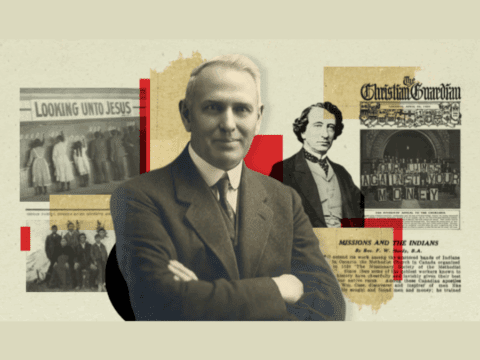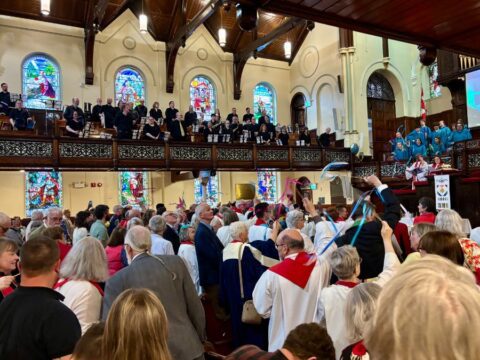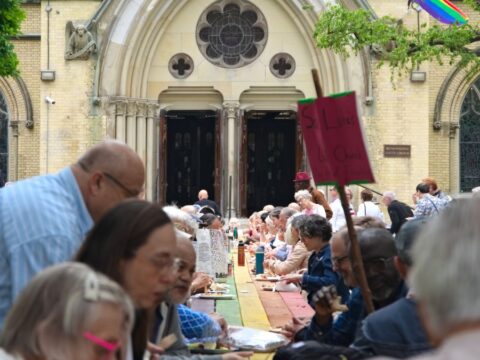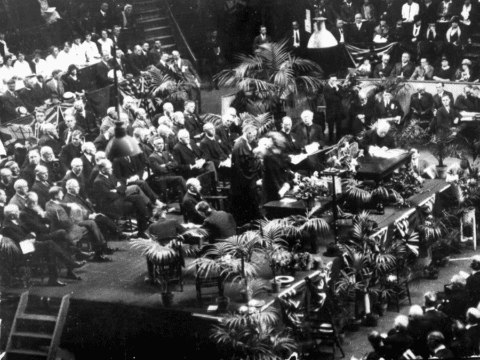It’s a cold mid-winter day, so maybe that’s why my thoughts drift back to a long and hot night three summers ago at the United Church’s 38th General Council in Wolfville, N.S., when a group of commissioners passed up a golden opportunity to fix a long-dysfunctional part of church life. They faced a daunting package of proposals that night. Buried among them was one from London Conference asking the church to develop a policy on the consumption of alcohol at church functions.
As if the mere mention of the a-word caused them discomfort, the commissioners gave the proposal their cursory consideration, then rejected it and moved on to other matters. It was late when they wrapped up their business, and by then some tempers had frayed. Many commissioners did what people often do after a long day and made a beeline for one of downtown Wolfville’s livelier taverns to unwind with other commissioners.
What’s wrong with this picture? Why can the United Church have passionate, faith-filled discussions on all manner of justice, ethical and theological questions, but shy away from an open discussion of something as relevant as a policy governing use of alcohol on church premises? Why pretend that alcohol is not on the church radar when the overwhelming majority of members, leaders and decision-makers, like the overwhelming majority of Canadians, consume alcohol — and consume it moderately and responsibly?
By rejecting the London Conference proposal, the Wolfville commissioners endorsed the status quo, which is more of a nod and a wink — an understanding — than it is a policy. In practical terms, the understanding is that individual congregations can make up their own minds on whether alcohol can be consumed on church premises; some allow it but most don’t. Broadly speaking, it’s also understood that the United Church and alcohol don’t mix, that talking openly and frankly about alcohol just isn’t done, regardless of what the majority of members do in their own homes and on their own time.
Where does this lead? To congregations that won’t host wedding receptions for members because the bride and groom might want to serve drinks to their guests. To ministers who have to look over their shoulders when they go to the liquor store (can’t be too careful, might run into a parishioner). To leaders forced to uphold practices they don’t believe in or follow themselves.
The United Church’s continuing squeamishness about alcohol is largely inherited from predecessors and earlier generations who were profoundly and legitimately disturbed by the social and personal cost of alcohol abuse. Make no mistake: alcohol abuse still exacts a terrible price on some families and communities, and no one should ever pretend otherwise. But the truth is, most people who drink alcohol don’t abuse it.
The United Church is currently trying to interest non-churchgoers in giving the United Church a try. Research has shown one of the biggest obstacles is the perception that congregations sometimes preach one thing and practise another. A little more honesty in its stand on alcohol isn’t going to fill the United Church’s empty pews, nor should it, but coming clean on its contradictions would be the kind of action that might help build a little trust.
The responsible thing for decision-makers to do the next time they’re asked to look at alcohol and the United Church would be to take the task seriously. I think there should be a next time, and if at the end of the day the decision-makers feel like a drink, they should go and have one.
This story originally appeared in the February 2017 issue of The Observer with the title “Alcohol at church.”















